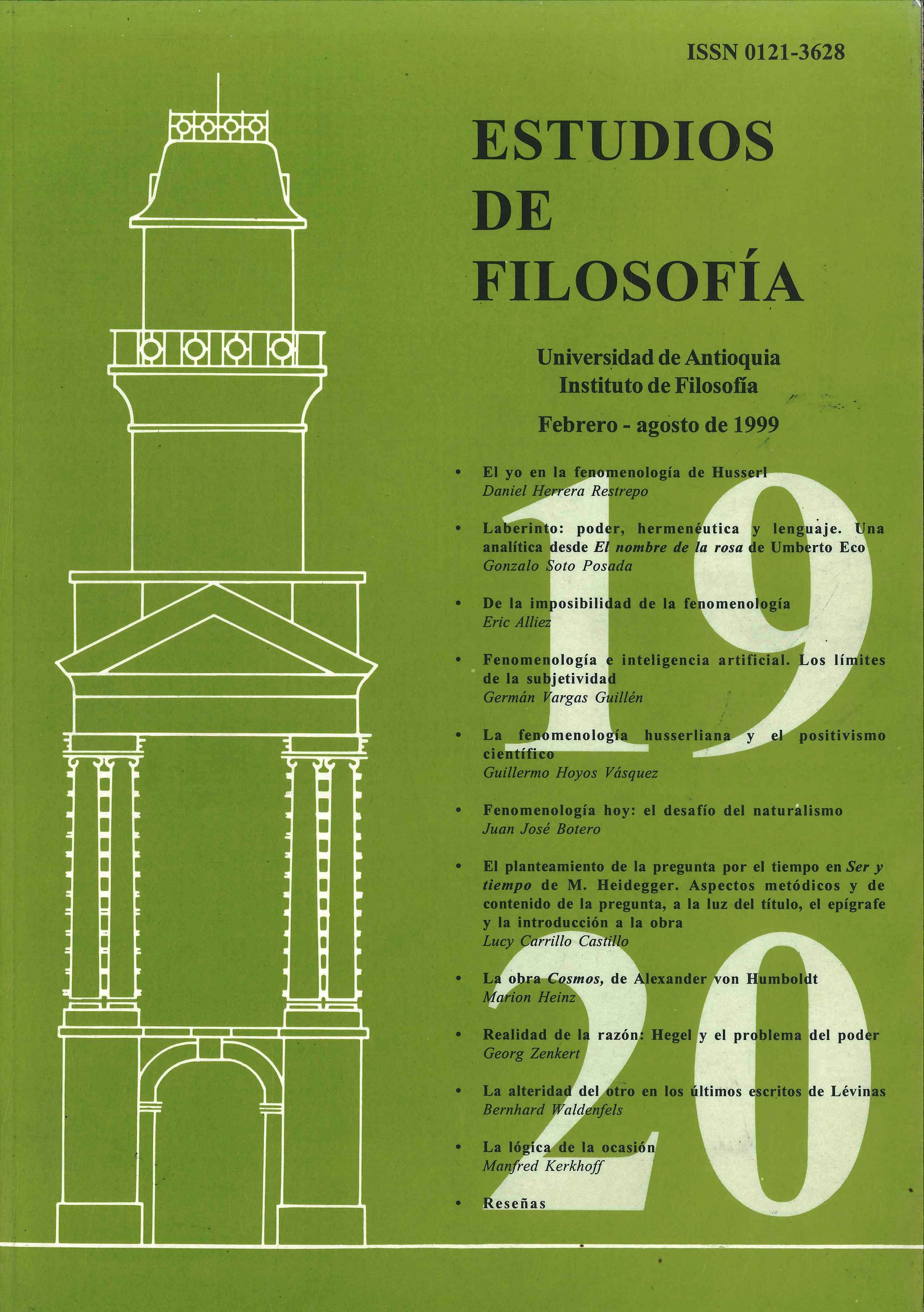Power, hermeneutics and language. An analysis from The Name of the Rose of Umberto Eco
DOI:
https://doi.org/10.17533/udea.ef.335779Keywords:
Labyrinth, Rhizome, Laugh.Abstract
Based on Umberto Eco's The name of the Rose, an attempt is made at showing the relationship between power, knowledge and language, using the figure of a rhizome type labyrinth with neither a center nor a periphery, always capable of receiving a structure, but never structured. In order to achieve this, two hermeneutic paradigms are proposed, so as to decipher the texts as a labyrinth. The first one is symbolized in Jorge de Burgos: every text is monosemantic and unidimensional, which politically leads to Jacobin and dogmatic fanaticisms. The second one is materialized in William of Baskerville: texts are polysemantic and their semiosis is unlimited, so there are no definitively written, read and interpreted texts. lt is necessary to inhabit the world from the point of view of doubt as a joyful search ad infinitum, which is translated politically into a struggle against all types of Jacobinism. The conclusion drawn from this last paradigm being tlzat hermeneutics dwell in texts since Babel, not since Pentecost. lt is the contrast between the hermeneutic seriousness of Burgos and the hermeneutic smile of Baskerville.
Downloads
Downloads
Published
How to Cite
Issue
Section
Categories
License
Copyright (c) 1999 Gonzalo Soto Posada

This work is licensed under a Creative Commons Attribution-NonCommercial-ShareAlike 4.0 International License.
Authors who publish with this journal agree to the following terms:
1. The Author retains copyright in the Work, where the term "Work" shall include all digital objects that may result in subsequent electronic publication or distribution.
2. Upon acceptance of the Work, the author shall grant to the Publisher the right of first publication of the Work.
3. The Author shall grant to the Publisher a nonexclusive perpetual right and license to publish, archive, and make accessible the Work in whole or in part in all forms of media now or hereafter known under a Creative Commons Attribution-NoCommercia-ShareAlike (CC BY-NC-SA 4.0), or its equivalent, which, for the avoidance of doubt, allows others to copy, distribute, and transmit the Work under the following conditions: (a) Attribution: Other users must attribute the Work in the manner specified by the author as indicated on the journal Web site;(b) Noncommercial: Other users (including Publisher) may not use this Work for commercial purposes;
4. The Author is able to enter into separate, additional contractual arrangements for the nonexclusive distribution of the journal's published version of the Work (e.g., post it to an institutional repository or publish it in a book), as long as there is provided in the document an acknowledgement of its initial publication in this journal;
5. Authors are permitted, and Estudios de Filosofía promotes, to post online the preprint manuscript of the Work in institutional repositories or on their Websites prior to and during the submission process, as it can lead to productive exchanges, as well as earlier and greater citation of published work (see The Effect of Open Access). Any such posting made before acceptance and publication of the Work is expected be updated upon publication to include a reference to the Estudios de Filosofía's assigned URL to the Article and its final published version in Estudios de Filosofía.















